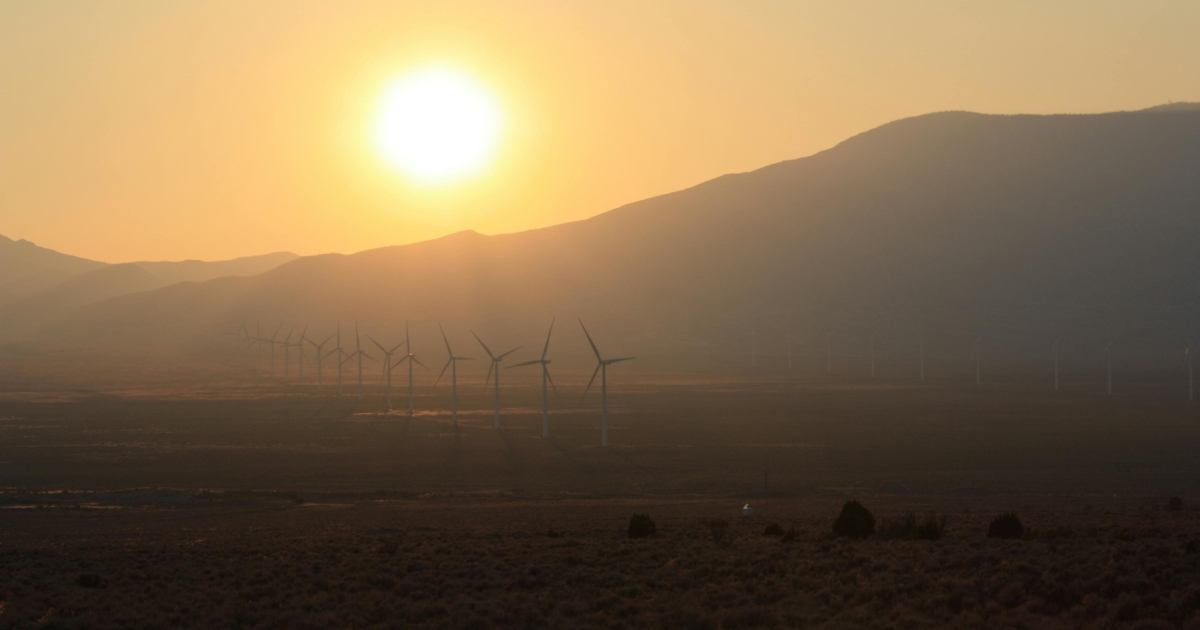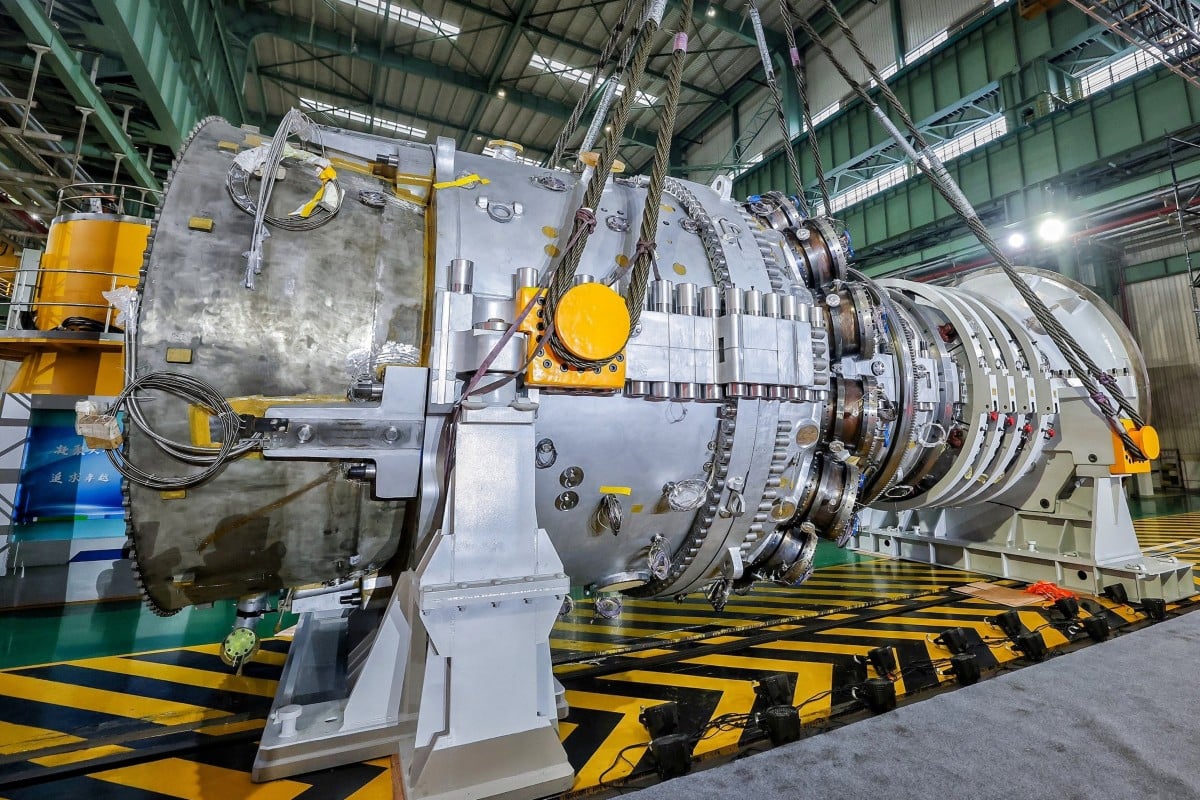
China, 中国
- www.scmp.com Alibaba cuts ‘dozens of employees’ at metaverse unit as sector’s hype cools down
The lay-offs affected Alibaba metaverse unit Yuanjing’s operations in Shanghai and Hangzhou, according to a report.

> Alibaba Group Holding is scaling down its metaverse operations, according to a source familiar with the matter, making it the latest Big Tech company to pull back resources from the once-popular sector.
> Dozens of employees at Yuanjing, the metaverse unit of e-commerce giant Alibaba, have been laid off, as part of a restructuring that aims to optimise and improve efficiency in the organisation, the source said.
> The lay-offs, which were first reported by Chinese media on Friday, affected Yuanjing’s operations in both Shanghai and Hangzhou, capital of eastern Zhejiang province. Yuanjing, which had received “billions of yuan” in investment, previously employed a few hundred workers, according to a report by online news outlet AI Jingxuanshe.
> The source, however, said the Alibaba unit will continue to exist, with a focus on metaverse applications and tools, as well as providing metaverse-based services to customers.
- • 100%www.businessinsider.com China is closing a South China Sea surveillance gap with a new radar made to spot stealth aircraft, satellite images suggest
The system, purported to have advanced counter-stealth capabilities, could challenge how US forces operate in the region.

https://archive.vn/H1jGO
- • 100%news.cgtn.com China extends visa-free policy to nine more countries
China has extended its unilateral visa-free policy to more countries, providing visa-free treatment to travelers holding ordinary passports from nine countries, namely: Slovakia, Norway, Finland, Denmark, Iceland, Andorra, Monaco, Liechtenstein and South

> China has extended its unilateral visa-free policy to more countries, providing visa-free treatment to travelers holding ordinary passports from nine countries, namely: Slovakia, Norway, Finland, Denmark, Iceland, Andorra, Monaco, Liechtenstein and South Korea, as of November 8, 2024, according to the Chinese Foreign Ministry on Friday.
- asiatimes.com China has no interest in saving relations with Israel - Asia Times
There is a growing trend worldwide where countries are becoming increasingly reliant on China for their economies and the US for their security.

- • 100%www.sixthtone.com In Chinese Megacities, ‘Ultra-Long Commutes’ Are on the Rise
A growing number of people in China’s largest cities are traveling over 90 minutes each way for work, a new report has found.

- • 100%www.struggle-la-lucha.org A retired railroader looks at China’s fantastic railroad system
A telling comparison between capitalist decay in the United States and surging economic growth in the socialist People’s Republic of China is in their railroad systems. Between 1950 and 2000,…

- • 75%www.scmp.com China’s clean-energy boom creates 7.4 million jobs
The sector is expected to keep on generating job growth, but perhaps not enough to cure the country’s unemployment woes.

https://archive.ph/RrIh1
- asiatimes.com How China can revive its bruised and dwindling billionaire class - Asia Times
Is the “smart” money still fleeing China? Whether it’s wise to leave Asia’s biggest economy is debatable. What’s not is that the mainland billionaire

> The last four years have been hard on China’s superrich and if Xi’s team doesn’t change course many more will become extinct.
- • 66%news.cgtn.com China's manufacturing PMI re-enters expansion territory in October, boosting economic outlook
China's manufacturing sector has shown signs of robust recovery as the purchasing managers' index (PMI) re-entered the expansionary territory in October.China's manufacturing PMI rose to 50.1 in October, up 0.3 percentage point from the previous month,

- • 70%www.scmp.com China on course for record harvest in boost for food security drive
Minister says the country is set to produce more than 700 million tonnes of grain for the first time despite extreme weather events.

https://archive.is/QRneD
YouTube Video
Click to view this content.
- news.vocofm.com Taiwan’s Ministry of National Defense admitted that the personal information of Gu Lixiong and other high-ranking generals was leaked: a review and negligence - VOCO News | North American Chinese real-time news
Taiwan media "China Times" exclusively reported on Monday (October 10) that the Political Style Office of Taiwan's Ministry of National Defense last week sent a list of all personnel within the Ministry of National Defense who must declare property, along with personal declaration information, to th...

https://archive.ph/bKMVd
- • 100%www.scmp.com Xi Jinping makes economic-centric instructions to spur China’s growth
President Xi Jinping says China’s economic and technological development zones should focus on modernisation, innovation and internal dynamism.

- • 50%
China Holds Massive Military Drills After Taiwan’s President Vows to 'Resist Annexation' w/ KJ Noh
YouTube Video
Click to view this content.

YouTube Video
Click to view this content.
cross-posted from: https://lemmygrad.ml/post/6021242
> Thoughts on this writing of Mao's? > > It's about 45 minutes long or thereabouts. > > "Oppose Stereotyped Party Writing" > > Seems good for me as a Communications major.
I tried asking on reddit, but tbh everyone is an asshole over there and were not giving me very detailed answers
This is gonna be a fairly complex question with a fairly complex answer, I know. A few things to preface to reassure that I'm not dashing into this without thinking.
1.I am not moving tomorrow. I'm getting my degree in my home country first, and then moving. (Obviously I will ask again when the time comes, since policies and situations can change)
2.I am planning on learning and becoming proficient(if not fluent) in Chinese
3.Im planning on taking internships and will have a degree in an industrial field, so I won't be completely unqualified for potential positions.
4.I know china isn't luxury gay space communism
Anyway, what I wanted to ask is a few subquestions in relation to one big overall question.
A.What is the process from getting from my country (the usa) to China going to be like? I mean, obviously I'm flying, but I've never moved countries before so I want to know what I'll need to do beforehand, how long the process will take, and what might prevent me from going in the first place
B.Is there any specific locations in China that you would recommend? Personally I'm thinking either Shanghai or Chongqing, however I generally just don't know where I'd fit in to start. I understand if I might not be perfect for a recommendation, but if there are some ideas that I could he presented with, I would greatly appreciate it, and I can always move to a different area later
(Edit:I'm also from an area with very few natural disasters. Should I move somewhere more inland, or northern, since I don't have experience in preparation and evacuation and such)
C.What is the process and what should I expect for getting a job? I live in the US, so how do I go about getting a job offer from a Chinese company to get a work visa. What would make me more viable as a canidate (besides language skills and a degree and experience, obviously)
D.The great firewall and such. How worried should I be about what I say, both in person and on social media? Also, how much access will I have to the non-chinese world? I've been told there might be access to VPNs, but I feel like that defeats the purpose of the great firewall, no?
E.Services. How does getting access to Healthcare, legal services, etc. Go when I'm not a citizen?
F.How worried should I be about day to day life and crime? How much more/less worried should I be about getting mugged/assaulted/burglarized (obviously depending on the area.)
G.How do I deal with the inevitable culture shocks I'll have?
And finally
H.Will there be any possibility of me obtaining Chinese citizenship? If yes, how long will it take, and what will and won't be available for me for the time im not a citizen? I checked the naturalization law, and it says if I'm stateless I can apply for citizenship if I'm "settled," but I dont exactly know what that means.
I think that covers everything. I'll add as much detail about myself as I am willing to share online (which isn't a ton). Thank you in advance for any help in this matter.
- • 100%asian-power.com Kashgar grid connects massive PV storage integrated project
The project has 2 million kilowatts of photovoltaic power generation.

- • 75%
Love
what is love?
- • 62%www.scmp.com Is Taiwan ‘a US sucker’? Weapons price gouging revealed on National Day
Taiwanese defence ministry blames manipulation by anti-US forces for claims published on mainland China’s most significant holiday.

https://archive.is/xM2wx
- jingdaily.com Academic bars: The latest social scene for Chinese urban ‘elites’ | Jing Daily
Academic bars are transforming China’s nightlife, blending intellectual discourse with casual socializing.

- • 100%www.scmp.com ‘Milestone’ for China’s gas turbine technology as it closes gap with the West
First domestically built 300MW heavy-duty gas turbine passes ignition test in Shanghai.

> China’s first domestically built 300-megawatt heavy-duty gas turbine – used for generating electricity and powering warships – has passed an ignition test.
> It marks a key milestone for the Chinese technology, which was said to lag behind that of the West by about 30 years when the project began in 2016. The team’s rapid progress has closed that gap in less than a decade.
> Developed by China United Heavy-Duty Gas Turbine Technology Co, the first prototype of the gas turbine was completed in February.
> The biggest gas turbine currently operating is the SGT5-8000H made by German company Siemens. It weighs in at 390 tonnes – about the same as an Airbus A380 – and its 375MW capacity is equal to the combined turbocharged engine power of 1,300 Porsche 911 cars. Yet the precision of its core blades is maintained within the thickness of a hair.
> The gas turbine ignited on Monday is comparable to the mainstream models in service globally, known as F-class. It has an operating temperature of around 1,400 degrees Celsius (2,552 Fahrenheit) and a capacity of 300MW.
> The goal of building an F-class 300MW heavy-duty gas turbine was listed in the government’s “Made in China 2025” plan to upgrade hi-tech industries and reduce dependency on imports, and an even more advanced 400MW turbine is targeted by 2030.
> “We must persistently continue our efforts and leverage the advantages of China’s national system,” Jin said. “[Also] ensure the research resources are there, allow researchers to focus solely on tackling key problems, and fully commit to validating the overall performance and reliability of the system.”
- • 50%en.qstheory.cn Developing Whole-Process People’s Democracy to Advance Chinese Modernization
After years of sustained effort, people’s democracy in China is now underpinned by a value system that prizes people above all else, as well as the protection of human rights, fairness and justice, well-rounded human development, and shared prosperity for all.
Western observers often express cynicism towards China's self-proclaimed "Whole-Process People's Democracy" without fully grasping its distinct characteristics and underlying principles. While Western liberal democracies prioritize periodic elections, China argues this approach is inherently limited, susceptible to corruption, and ultimately fails to truly represent the people's will.
In contrast, the Chinese model envisions democracy as an ongoing, pervasive force woven into the fabric of governance and daily life. This "whole process" approach emphasizes continuous engagement between the government and its citizens, fostering policies that are more responsive to evolving needs guided by active public engagement rather than solely during election cycles.
The engagement manifests in institutions like the Chinese People's Political Consultative Conference (CPPCC) at the national level, where representatives from diverse social groups and regions contribute to policymaking. At the grassroots level, residents' committees and village committees empower citizens to participate in local decisions impacting their daily lives, from development projects to community services.
Furthermore, numerous channels exist for citizens to oversee government actions. These include reporting corruption or misconduct by officials and providing feedback and suggestions. Importantly, China's 100 million Communist Party members, deeply embedded within society, are tasked with understanding and responding to the needs and desires of the people, further strengthening accountability.
In practical terms, "whole-process" democracy in China fosters a culture of continuous dialogue, consultation, and collaborative problem-solving between the government and its citizens. It's an approach that prioritizes tangible outcomes over procedural adherence. The focus lies on the practical results of governance, such as "delivering sustained, stable, and sound national development," rather than solely relying on electoral processes to determine democratic legitimacy.
Originally a communist term contrasting with "bourgeois democracy," "people's democracy" highlighted the limitations of capitalist states that, despite offering formal political rights, perpetuated economic inequality and upheld the dominance of the capitalist class.
While the meaning has evolved, it retains the core principle of prioritizing the welfare and will of the masses over the interests of elites or special interest groups. As articulated in the Qiushi article, China's policies must "truly reflect the people's concerns, embody their aspirations, promote their wellbeing, and meet their desire for a better life."
Rather than viewing society as merely a collection of individuals, the society is seen as an organic entity with its own existence and importance. Just as a complex biological organism relies on a nervous system and brain to coordinate its various organs, a complex society requires a central planning mechanism to harmonize its diverse functions. This perspective underscores the article's emphasis on "fostering social harmony" as a fundamental objective of China's democratic model.
Last point, which I'm sure many of you will be asking themselves is: "yes that's all good and well, but is it really a democracy if people can't choose their rulers?"
Because the Chinese system offers numerous avenues for citizen participation in policy and governance beyond simply electing leaders, the concept of "official" differs significantly from Western notions. Within China's whole-process democracy, officials are viewed as executors of the people's needs and will, rather than detached decision-makers.
These officials are selected based on their proven track records and meritocratic exam results, not through campaign prowess or appeals to narrow interest groups. Their legitimacy stems not from electoral victory, but from their effectiveness in implementing policies that reflect and serve the public interest. This system prioritizes continuous legitimacy earned through tangible achievements, rather than periodic validation through the ballot box.
The West often champions "diversity," but frequently confines itself to superficial variations within a narrow spectrum of acceptable thought. China, however, presents a truly divergent model – a profound difference in philosophical foundation and societal structure. Rather than reacting with fear or dismissal, we should embrace this contrast. China offers an invaluable mirror, reflecting a different vision of societal organization and prompting critical self-reflection. Engaging with this alternative perspective is not merely an intellectual exercise; it is crucial for navigating an increasingly complex and interconnected world.
YouTube Video
Click to view this content.
- www.bloomberg.com YMTC Refines Chip Tech With Chinese Tools, TechInsights Says
China’s Yangtze Memory Technologies Co. has made progress in replacing foreign chipmaking technology with homegrown alternatives and its latest storage products now rival global market leaders, according to new research from TechInsights.

https://archive.is/2AfDy
- • 85%www.bloomberg.com China Detains Investment Bankers, Takes Passports in Corruption Sweep
China is turning up the heat on its army of 8,700 investment bankers.

https://archive.is/7Lpax
YouTube Video
Click to view this content.
- • 90%www.scmp.com ‘Profits over politics’: firms won’t flee Hong Kong after US alert, observers say
Updated advisory has warned of heightened risks for companies operating in Hong Kong, but limited impact expected on the ground.

- www.scmp.com China’s middle-income population passes 500 million mark: state-run newspaper
The figure, which marks a rise of 100 million over five years, was released at a time when the authorities are looking to domestic consumption to boost growth.

YouTube Video
Click to view this content.


